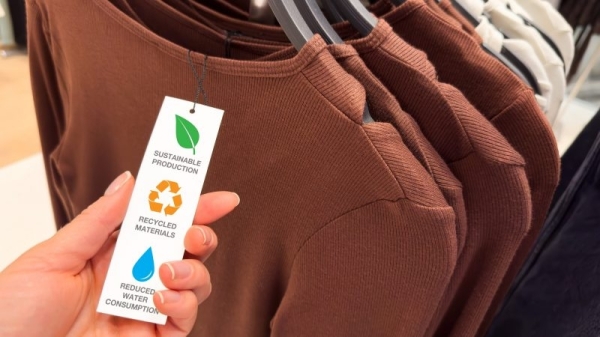Don’t believe everything you read: Why ‘green’ labels need to be regulated

The EU’s new Green Claims directive, due to be published on Wednesday (22 March), is essential to move from claims to facts and ensure products live up to their environmental credentials, writes Tahmid Chowdhury.
Tahmid Chowdhury is programme manager of Corporate Leaders Group Europe’s Materials & Products Taskforce at the Cambridge Institute for Sustainability Leadership.
It’s becoming harder and harder to know whether the environmental credentials many products purport to have are legitimate.
In the EU, there are more than 200 active environmental labels, and more than 450 worldwide.
There are also over 80 widely used reporting methods and even these only take into account carbon emissions, omitting many other factors which feed into a company’s sustainability efforts. Some methods are reliable, but some are not.
An extremely important piece of legislation comes out Wednesday (22 March) in the EU, known as The ‘Green Claims’ directive. It was expected to be published last year but was delayed several times due to a lack of consensus on methodologies.
The European Commission estimates that almost half (40%) of the environmental claims made about products in the EU are “unsubstantiated”.
In November 2020, the Consumer Protection Cooperation Network (which assesses unfair commercial practices) found at least 42% of cases to be under ‘reasonable doubt’ when it came to being false or deceptive.
So what makes a product environmentally friendly? It may be due to its composition, the way it has been manufactured or produced, the way it can be disposed of, or the reduction in energy/low levels of pollution resulting from its use.
Examples might include ‘bio’ or ‘eco’ labels on products, energy efficiency stickers on household appliances, or fuel efficiency labels on tyres. Or claiming that a product has been approved by an environmental agency, NGO or regulatory body when this is not the case.
We want to move from ‘green claims’ to green facts. And this new legislation on substantiating green claims looks to do that, by standardising methodologies being used by companies so that they are reliable, comparable, and verifiable across the EU.
Trustworthy environmental information would allow all market actors, i.e. consumers, companies and investors, to make greener decisions.
This legislation also requires EU member states to introduce administrative penalties to make sure no companies get away with it.
It is a welcome step forward, but there is always room for improvement, particularly when it comes to circularity.
The EU could be doing more to encourage businesses to re-use materials and design products for recyclability and repairability.
Right now, it is too easy for companies to make environmental claims that are not accurate. This can mislead market actors, including consumers. They strongly believe that robust data, third-party verification and harmonised definitions are at the core of accurate and reliable environmental advertising.
So the principle of greater scrutiny on these claims is positive. Nonetheless, there is still a long way to go before we can describe the EU’s current approach as genuinely circular.
Better labelling will give transparency, but this on its own will not shift us away from our current take-make-waste model of consumption. We need a wider system-change approach to shift the way we create and consume products.
We also need to keep a close eye on unintended consequences that can make us less sustainable. The jury is still out on the reporting methodology known as the ‘Product Environmental Footprint’ within the legislation, for example.
Previous pilot projects have demonstrated issues due to a lack of verified data. In some cases this actually penalised a company’s sustainability practices due to the way the footprint was calculated.
This legislation on green claims may seem like it is tackling a relatively niche problem, but in essence, it is dealing with something much broader – how we view and talk about sustainability as a society.
This is an opportunity for Europe to lead through regulatory action. It is vital that we have a strong, effective piece of legislation to combat greenwashing.



